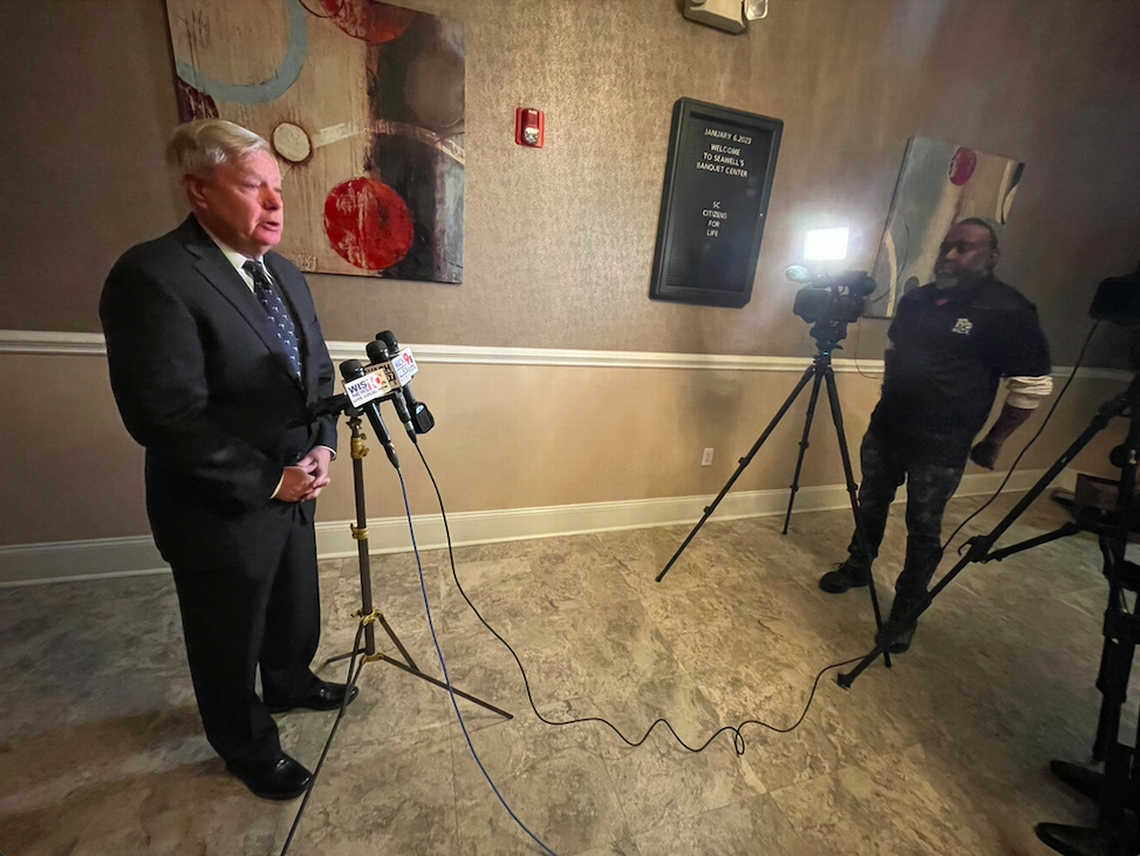SC Supreme Court makeup may face GOP scrutiny after 6-week abortion ban struck down

- Oops!Something went wrong.Please try again later.
The S.C. Supreme Court’s Jan. 5 ruling that struck down the state’s six-week abortion ban has shifted many Republicans’ focus to the makeup of the high court itself. Some now say they’re concerned about the future politicization of the judicial process.
State Senate Majority Leader Shane Massey, echoing his statement last week that the court’s “decision will almost certainly result in the politicization of South Carolina’s judges to yet unseen levels,” said Monday he “will be amazed” if there isn’t political pushback over the way the Legislature vets and elects judges to the state’s high court.
U.S. Sen. Lindsey Graham, R-S.C., said Friday, “There will be a movement in South Carolina to make sure that we put people on the Supreme Court that follow the law and not become legislators.”
Speaking to reporters at the S.C. Citizen’s for Life Proudly Pro-Life Dinner, Graham, who has pushed for a national 15-week abortion ban with some exceptions, added, “I can assure you that when it comes time to pick future Supreme Court justices, that people in this room and other places are going to be lobbying the State House to pick judges who understand the difference between being a politician and a judge.”
The state Supreme Court ruled 3-2 last week that the state’s six-week abortion ban violated the state’s constitutional right to privacy.
The court majority wrote that six weeks “is, quite simply, not a reasonable period of time for these two things to occur, and therefore the Act violates our state Constitution’s prohibition against unreasonable invasions of privacy.”
The ruling means the state’s previous abortion ban at about 20 weeks of pregnancy stays in place, for now.
“It threw us a curve ball,” Massey, R-Edgefield, said. “The timing of it, the substance of the ruling is going to have an impact.”
After the U.S. Supreme Court’s Dobbs decision last summer overturned the 1973 landmark case Roe v. Wade, South Carolina legislators returned to Columbia to debate further abortion restrictions. Those efforts failed, however, after Republicans could not reach a compromise over how restrictive the ban should be.
South Carolina Republican lawmakers said Monday in Columbia that the Legislature likely will respond this year to the state court’s ruling.
None were unified, though, on what that response would be, saying they’re still digesting the 147-page ruling.
State Sen. Katrina Shealy, one of five women in the upper chamber, said Monday she hopes the Legislature focuses on legislation that will help women and children rather than spend lengthy time debating abortion restrictions.
“I get the part that we don’t want to kill babies, because nobody wants to do that,” said the self-described “pro-life” Lexington Republican, “but women need the right to make decisions up to a certain point.”
Across the political aisle, Senate Minority Leader Brad Hutto, D-Orangeburg, who has proposed a bill to codify Roe v. Wade, said, “You won’t see anyone on our side introduce any restrictions on abortion.”
It would take two-thirds of lawmakers in each chamber — a difficult threshold — to agree to put the abortion issue up for a public vote, which would be the only way to amend the S.C. Constitution.
With uncertainty over what exactly lawmakers will do to respond to the court ruling, eyes are on an upcoming judicial race.
In South Carolina, lawmakers, not voters, elect judges, including to the state Supreme Court.
This year, lawmakers will elect a successor for Justice Kaye Hearn, the sole woman on the state’s high court, who wrote the majority opinion on the court’s ruling over the six-week abortion ban.
“I think it’ll have an impact,” Massey said, saying legislators are paying more attention the process than previously.
The S.C. legislative session starts Tuesday, Jan. 10.

